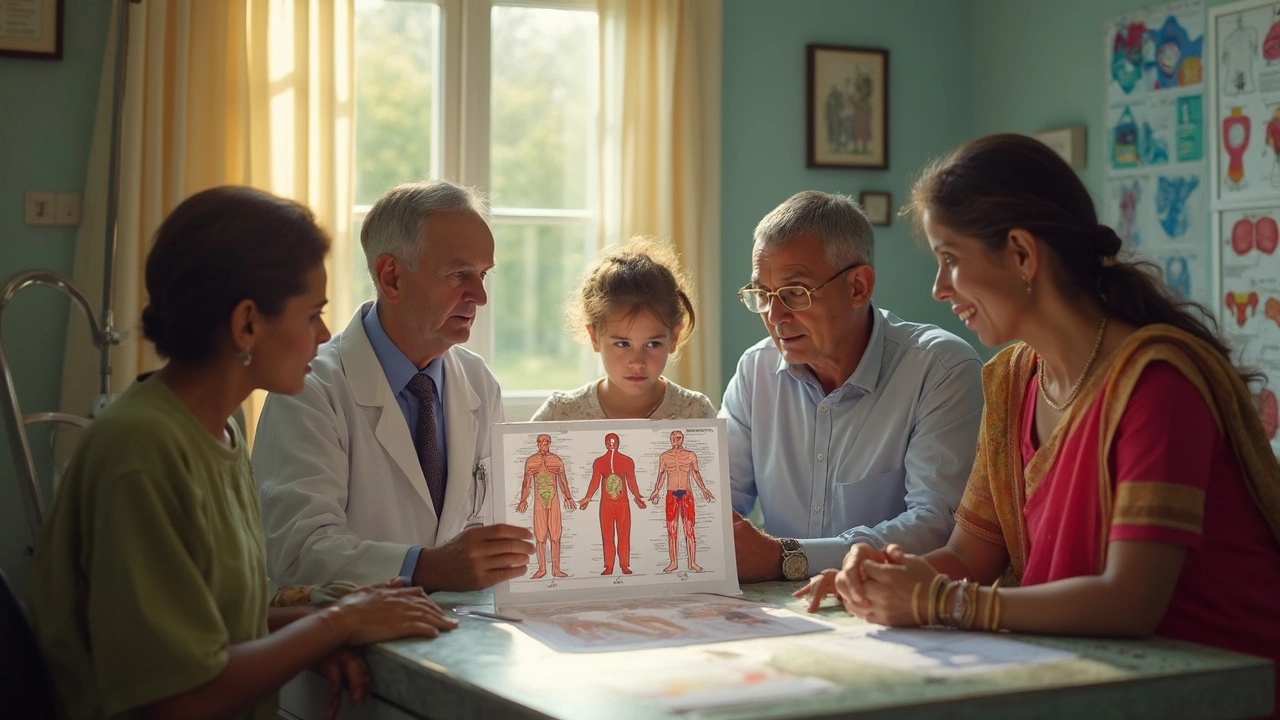Prognosis: What It Means and How It Affects Your Health Decisions
When a doctor talks about your prognosis, the likely outcome or course of a disease based on medical evidence and individual factors. Also known as health outlook, it’s not a guess—it’s a calculated estimate built from data, experience, and your unique situation. It answers the quiet question you might not ask out loud: What happens next? Whether you’re facing cancer, heart surgery, or a chronic condition, your prognosis shapes everything—from treatment choices to how you plan your days.
A good prognosis doesn’t always mean a cure. Sometimes it means managing symptoms for years, like with type 2 diabetes or rheumatoid arthritis. A poor prognosis doesn’t mean giving up—it often means shifting focus to quality of life, comfort, and meaningful time. In cancer prognosis, the predicted survival rate and response to treatment for specific cancer types, factors like stage at diagnosis, tumor biology, and age matter more than fear. Pancreatic cancer has one of the toughest prognoses because it’s often found too late, while early-stage breast cancer often has a very favorable outlook. Your recovery timeline, the expected period for healing after surgery or illness is another kind of prognosis. After open-heart surgery, most people can live alone in 4 to 8 weeks—but only if they’ve regained strength, balance, and confidence. That’s not just time passing; it’s progress measured in steps taken, stairs climbed, and tasks done without help.
Prognosis isn’t written in stone. It’s a starting point. New treatments, lifestyle changes, and even mental resilience can shift the numbers. Someone told they had months to live after a diagnosis might still be here two years later because they found a clinical trial, dropped sugar, or got strong emotional support. Your prognosis is personal. It’s not just about statistics—it’s about your body, your habits, your support system, and your will. That’s why you need to understand it, not just hear it. Ask your doctor: What does this prognosis mean for my daily life? What can I do to improve it? What are the signs things are going better—or worse?
The posts below cover real cases where prognosis shaped decisions: how long to wait before IVF after having a baby, why some people aren’t good candidates for knee replacement, what makes pancreatic cancer so hard to cure, and how recovery from spinal fusion can take over a year. You’ll find honest takes on what works, what doesn’t, and what really matters when the numbers are on the table. No fluff. No false hope. Just clear, practical info to help you make smarter choices—with or without a prognosis in hand.
Cancer Patient Survival: How Long Can Someone Really Live?
This article digs into what really affects how long someone can live after a cancer diagnosis. It strips away confusing medical terms to give clear facts and practical advice. You'll find out what influences survival, from the tiniest cancer cells to treatment choices and personal health. Expect real tips for improving everyday life and useful info for patients and families. No false hope, no scare tactics—just what you need to know.
Stage 4 vs Stage 3: What’s Worse When It Comes to Cancer?
Stage 3 and stage 4 cancers aren’t just numbers. They signal how much cancer has spread and what that means for treatment and life ahead. This article slices through the medical jargon and talks honestly about what makes stage 4 generally tougher to treat than stage 3. Understand what the stages mean, what changes as cancer moves from one to the next, and why stage 4 often comes with bigger challenges. Find tips on what to ask your doctor and ways to cope, wherever you or a loved one might be in the journey.






